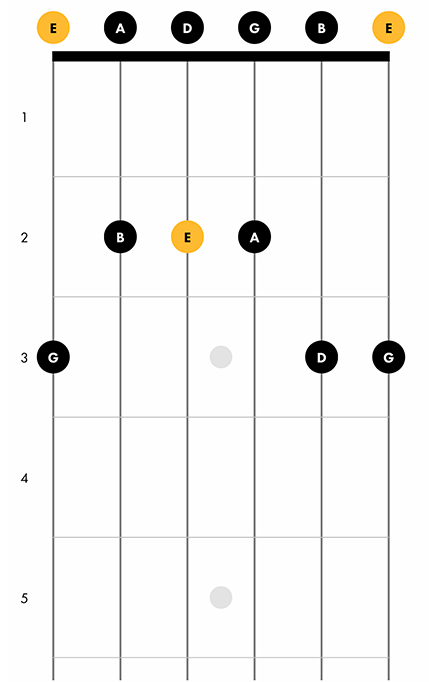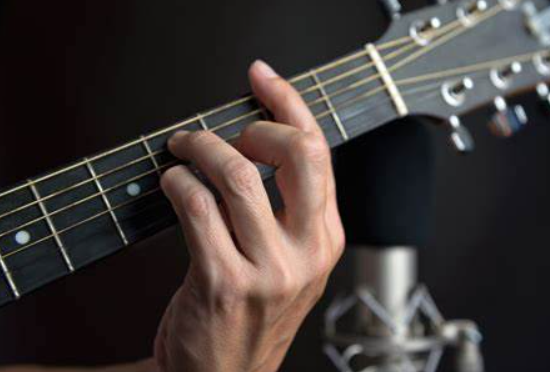All you Need to Know About How To Play the E Minor Pentatonic Scale

Whether you’re a beginner guitar player or an experienced musician looking to expand your improvisational skills, the E Minor Pentatonic scale is a fundamental tool that can enrich your playing. This simple yet powerful scale is widely used across various genres, including rock, blues, jazz, and even pop music. In this blog, we’ll explore the E Minor Pentatonic scale, its structure, how to play it on the guitar, and tips for practicing effectively.
What is the E Minor Pentatonic Scale?
The E Minor Pentatonic scale is a five-note scale that is derived from the natural minor scale. The word “pentatonic” comes from the Greek “pente,” meaning five, and “tonic,” meaning tone. So, essentially, it’s a five-tone scale that is easier to learn and incredibly versatile for soloing and creating melodies.
Notes in the E Minor Pentatonic Scale
The E Minor Pentatonic scale consists of the following notes:
- E (the root)
- G (the minor third)
- A (the perfect fourth)
- B (the perfect fifth)
- D (the minor seventh)
These notes are selected from the E natural minor scale, specifically omitting the second and the sixth degrees, which simplifies its use and memorization.
Fretboard Positions
The E Minor Pentatonic scale can be played in various positions across the fretboard. For starters, it’s beneficial to learn the first (open) position:
Open Position

- First, strum the low E string while it’s open.
- Next, place your middle finger on the third fret of the same string.
- As you progress through the scale, continue this pattern of playing an open string followed by a fretted note.
- You will find that for this scale, you play the open position on each of the six strings, with your middle and ring fingers pressing down on either the second or third frets.
This position utilizes open strings and is particularly user-friendly for beginners.
Practice Tips
- Start Slow: Begin by practicing the scale slowly and evenly, ensuring each note sounds clear and distinct. Use a metronome to keep your timing consistent.
- Use Alternate Picking: Alternate picking (down-up picking) is crucial for developing good right-hand technique and increasing your playing speed over time.
- Memorize the Scale: Play the scale up and down until you can recall it without looking at any reference. This memorization will vastly improve your ability to improvise.
- Play Along to Music: Practice the scale along with backing tracks or songs in E minor. This will help you hear how the scale fits within different musical contexts.
- Experiment with Phrasing: Once comfortable, start experimenting with different rhythms and phrasing. Try skipping notes, playing in different octaves, or adding slight bends to certain notes to express yourself more uniquely.
The E Minor Pentatonic scale is a gateway to expressive guitar playing. It’s not only foundational for beginners but also a well-spring of inspiration for advanced players. With consistent practice, this scale can become second nature, allowing you to improvise fluidly and confidently across various musical styles.
If you’re interested in learning an instrument, at Real Brave, we offer an incredible experience like no other place in music lessons for kids and adults by guiding them from the beginning stages of getting to know an instrument all the way through performing for family and friends on stage. Our instructors come from all over the world, bringing extensive experience on a wide range of instruments. Click below and book a free lesson with us!
Author: Daniel Powers Jr, the founder of Real Brave™, serves as the chief inspiration to thousands of students in the Real Brave music instruction program. He’s also the visionary behind PracticePad™, an online platform for live one-on-one online music lessons, lesson tracking, and scheduling. Beyond his entrepreneurial pursuits, Daniel leads a non-profit organization that provides formerly homeless children with access to music education, making a profound impact on their lives. His unwavering dedication to music, innovation, and education continues to inspire individuals to reach their fullest potential while creating positive change in communities. Follow Real Brave on all the socials:
Find us on Instagram: https://www.instagram.com/realbraveaudio/
Find us on Youtube: https://www.youtube.com/@realbraveinc




